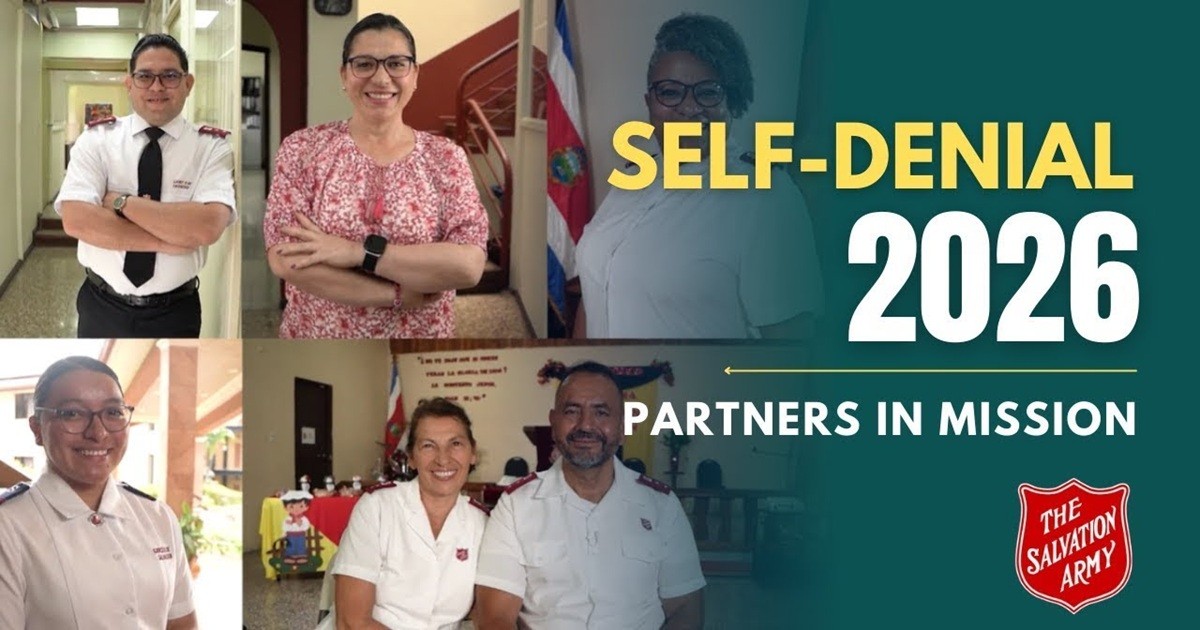Have you ever been in a situation where you think you've got it, but you don't? You did everything right, according to plan, the way you've always done it. It has always worked—but this time, it doesn't. Now what?
I've discovered that these moments offer us an incredible opportunity. When an outcome is different than our expectations, it forces us to stop and ask some important questions: What are we doing? Why are we doing it?
Recently, I've been asking a lot of questions about worship. How we can live out the kind of worship the Lord says he requires from us in Isaiah 58? How can we shift from a posture of “receiving” to a posture of “giving” while we worship? After I preach, I've been asking people for a tangible response—to consider giving financially to help children escape extreme poverty, through child sponsorship.
In my line of work, I've come to realize that we need to reach children or we have no hope of slowing the violent trajectory of poverty that leads to systemic injustice, such as human trafficking (the world's fastest-growing crime). Sending a girl to school reduces her chances of being trafficked by 80 percent.
But getting people to respond has been harder than I expected. I'm used to asking people to respond to what I preach, but it's almost always to receive something. The difference with this kind of preaching is that it requires something of the people listening. Few of us are used to being asked to give something in worship.
I fear we have come to believe that worship is a receiving act, a place we come to draw near to God. And that's true, but not the whole truth. Worship is more like breathing than shopping. The rhythm of God's coming kingdom is receiving and giving—freely we receive, freely we give, Jesus said. So I've been shocked at how hard it is to do the asking. To be truthful, I've also been confused about the smallness of the giving.
Now, don't get me wrong. I'm thrilled that more children in need are going to receive support. I know many people are already giving sacrificially to other worthy places, people and organizations (at least that's what I tell myself to get to sleep at night) and it's hard to contribute to another “good cause.” But I'm wondering about the cost to all of us when we worship only to receive. And how it might be robbing the church of the opportunity to encounter the God of the Bible.
Isaiah 58 is about God telling his people why they weren't feeling his presence in their lives. He says that his answers to their prayers are held back by their refusal to respond to injustice and the poor. He says that offering elaborate displays of worship while refusing to engage with the needs of our fellow humans is unfaithfulness. It means we've somehow disengaged our hearts from the pain of the poor, and, in so doing, have moved far from him.
No matter how high we raise our hands, or how amazing the singing, or how high-tech the lighting, the Spirit of the Lord is far from us because we are far from the poor.
I know that seems harsh, maybe even judgmental. Take it up with Isaiah, or Amos, or Jesus, for that matter. Or the early church, or the epistles of Paul or James, or Revelation. The fact that it's awkward to talk about the God of the Bible linking our worship of him with our care for the poor suggests that we are guilty of missing it. Why else would it be awkward? Why else would it be a difficult part of the meeting? Why else would you be secretly rooting for me to back down and change my tone? What's the deal?
Here are a few things that I believe need a seismic shift as we learn to worship the God of the Bible:
From self-focused worship to a radical act of surrender. We shouldn't come to worship for ourselves, for our needs or preferences. We should come to offer ourselves to God (see Romans 12). Worship realigns our posture—from focusing on ourselves to focusing on the sovereignty of God.
From receiving a blessing to blessing God. This is the crux of the problem. Too often, we come to worship to receive a blessing, when worship is supposed to be about us blessing God. The question we should be asking in worship is not, “How will God bless me?” but, “How can I bless God?” In the history of God's people, the best examples of worship were always accompanied by extravagant giving.
From emotional responses to responsive obedience to God's Word. We've been fed a steady self-help diet that says the primary aim of our lives should be to feel good. But the peculiar truth never seems to dawn on us—that when our feelings are the driving force of our lives, when we have an insatiable thirst for self-fulfilment, we feel less and less gratitude and compassion, and more and more emptiness. The Bible equates our love not with warm fuzzies, but with radical obedience to God. That's what it says. Obedience equals love.
Here's the part where I remind you that God loves you no matter what and will be with you no matter what. God's love is pure and holy and available, but I'm afraid that what we've taken as God's love is just an imitation of it. A self-focused, materialistic and fickle love that comes and goes with the quality of the performer.
I know—it's hard. But what if it's true?
I'm asking God to shift my posture. To realign my life according to his values. To respond with obedience. To draw near to bless him, instead of demanding a blessing for myself. To pray for his presence to help me stay fully engaged with the pain and injustice of the world, so that I can help, somehow. That's the worship he's been waiting for.
Major Danielle Strickland is the territorial social justice secretary in the U.S.A. Western Territory.
I've discovered that these moments offer us an incredible opportunity. When an outcome is different than our expectations, it forces us to stop and ask some important questions: What are we doing? Why are we doing it?
Recently, I've been asking a lot of questions about worship. How we can live out the kind of worship the Lord says he requires from us in Isaiah 58? How can we shift from a posture of “receiving” to a posture of “giving” while we worship? After I preach, I've been asking people for a tangible response—to consider giving financially to help children escape extreme poverty, through child sponsorship.
In my line of work, I've come to realize that we need to reach children or we have no hope of slowing the violent trajectory of poverty that leads to systemic injustice, such as human trafficking (the world's fastest-growing crime). Sending a girl to school reduces her chances of being trafficked by 80 percent.
But getting people to respond has been harder than I expected. I'm used to asking people to respond to what I preach, but it's almost always to receive something. The difference with this kind of preaching is that it requires something of the people listening. Few of us are used to being asked to give something in worship.
I fear we have come to believe that worship is a receiving act, a place we come to draw near to God. And that's true, but not the whole truth. Worship is more like breathing than shopping. The rhythm of God's coming kingdom is receiving and giving—freely we receive, freely we give, Jesus said. So I've been shocked at how hard it is to do the asking. To be truthful, I've also been confused about the smallness of the giving.
Worship is more like breathing than shopping
Now, don't get me wrong. I'm thrilled that more children in need are going to receive support. I know many people are already giving sacrificially to other worthy places, people and organizations (at least that's what I tell myself to get to sleep at night) and it's hard to contribute to another “good cause.” But I'm wondering about the cost to all of us when we worship only to receive. And how it might be robbing the church of the opportunity to encounter the God of the Bible.
Isaiah 58 is about God telling his people why they weren't feeling his presence in their lives. He says that his answers to their prayers are held back by their refusal to respond to injustice and the poor. He says that offering elaborate displays of worship while refusing to engage with the needs of our fellow humans is unfaithfulness. It means we've somehow disengaged our hearts from the pain of the poor, and, in so doing, have moved far from him.
No matter how high we raise our hands, or how amazing the singing, or how high-tech the lighting, the Spirit of the Lord is far from us because we are far from the poor.
I know that seems harsh, maybe even judgmental. Take it up with Isaiah, or Amos, or Jesus, for that matter. Or the early church, or the epistles of Paul or James, or Revelation. The fact that it's awkward to talk about the God of the Bible linking our worship of him with our care for the poor suggests that we are guilty of missing it. Why else would it be awkward? Why else would it be a difficult part of the meeting? Why else would you be secretly rooting for me to back down and change my tone? What's the deal?
Here are a few things that I believe need a seismic shift as we learn to worship the God of the Bible:
From self-focused worship to a radical act of surrender. We shouldn't come to worship for ourselves, for our needs or preferences. We should come to offer ourselves to God (see Romans 12). Worship realigns our posture—from focusing on ourselves to focusing on the sovereignty of God.
From receiving a blessing to blessing God. This is the crux of the problem. Too often, we come to worship to receive a blessing, when worship is supposed to be about us blessing God. The question we should be asking in worship is not, “How will God bless me?” but, “How can I bless God?” In the history of God's people, the best examples of worship were always accompanied by extravagant giving.
From emotional responses to responsive obedience to God's Word. We've been fed a steady self-help diet that says the primary aim of our lives should be to feel good. But the peculiar truth never seems to dawn on us—that when our feelings are the driving force of our lives, when we have an insatiable thirst for self-fulfilment, we feel less and less gratitude and compassion, and more and more emptiness. The Bible equates our love not with warm fuzzies, but with radical obedience to God. That's what it says. Obedience equals love.
Here's the part where I remind you that God loves you no matter what and will be with you no matter what. God's love is pure and holy and available, but I'm afraid that what we've taken as God's love is just an imitation of it. A self-focused, materialistic and fickle love that comes and goes with the quality of the performer.
I know—it's hard. But what if it's true?
I'm asking God to shift my posture. To realign my life according to his values. To respond with obedience. To draw near to bless him, instead of demanding a blessing for myself. To pray for his presence to help me stay fully engaged with the pain and injustice of the world, so that I can help, somehow. That's the worship he's been waiting for.
Major Danielle Strickland is the territorial social justice secretary in the U.S.A. Western Territory.










Comment
On Sunday, March 13, 2016, Pete Brookshaw said:
On Wednesday, March 2, 2016, Kathie Chiu said:
Leave a Comment